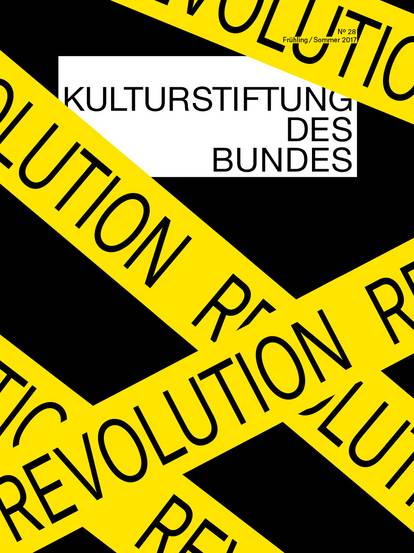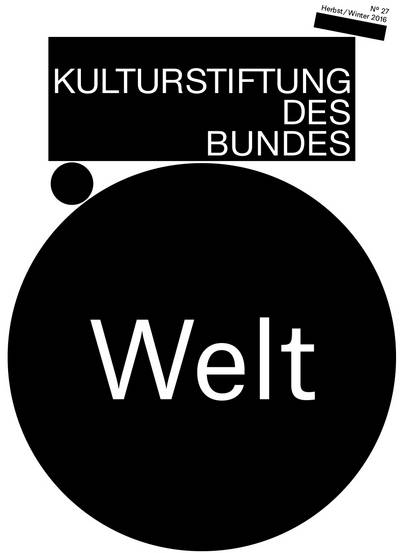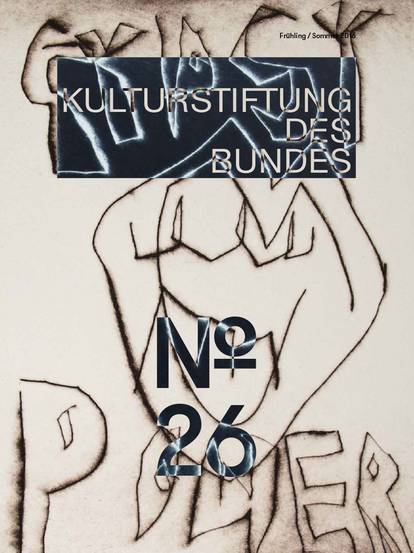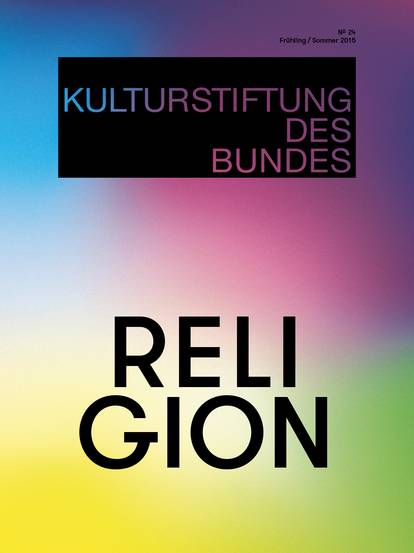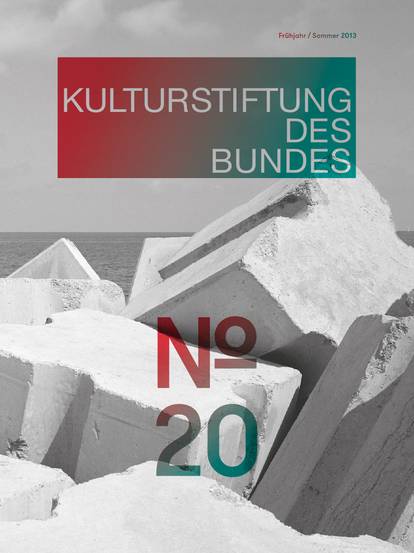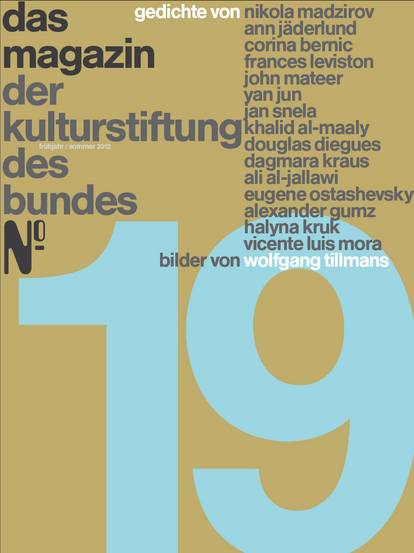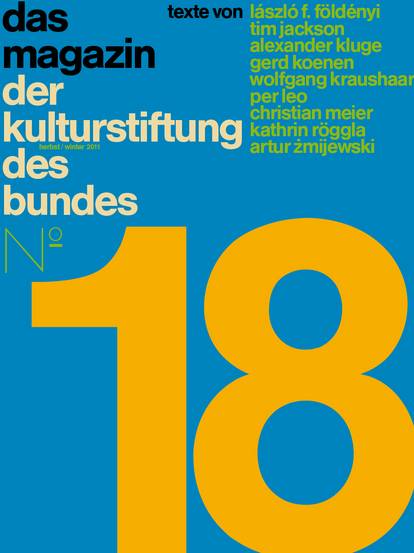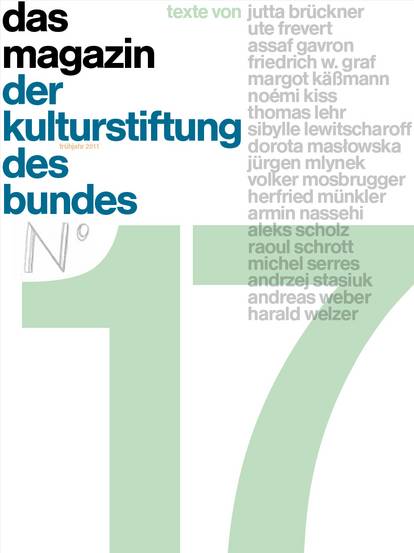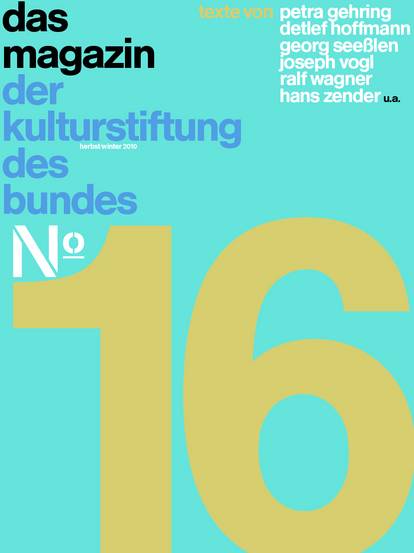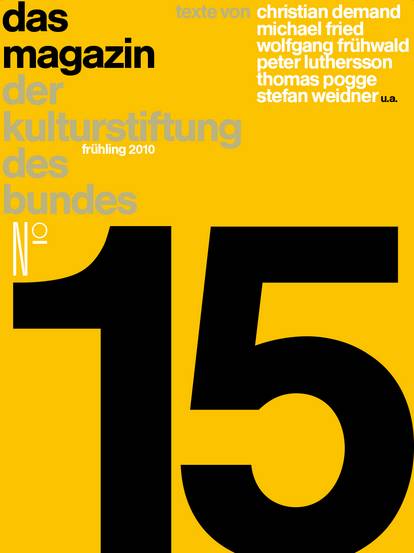How strongly do you feel post-colonialism influences your thinking and work? Is it possible to escape it? And how would you know that you succeeded?
Three questions to five African artists
JOYCE NYAIRO
To grow up dreaming and speaking in an “other” language; a language that people keep reminding you is not yours; a language that people call foreign in a way that suggests that it contaminates everything it touches, means that one is forever more shaped between uneven places and uneven wisdoms. That means that one is post-colonial in the period or epoch sense of the term. To be post-colonial is to grow up after the colonizer has left so much behind – so much that is jumbled up and disconnected, so much that leads to disconnections and appropriations of new things that excite as much as they disorient. My post-colonialism goes beyond a mere defense of "native" cultures. Actually, it sometimes disputes the relevance of what is said to be native. It entails a redefinition of that term “native” to include what has been borrowed and domesticated over the long dureè of Africa's engagement with the west and the rest.
To be post-colonial means being more than bi-lingual, more than multi-cultural because always, there is a hierarchy prescribed to these languages and these cultures by someone else. How many times have I had to explain why I carry an English name, a “Christian name”; why I do not have an ethnic name? And yet in this post-colonial condition no name is better or more authentic than another. All names reflect moments in our making, strands of our borrowings and becoming. Imposed hierarchy defy class because there are so many intertwinings, so many fluid mergers and ruptures that make the dichotomies of dominance and dominated too simplistic.
My work as a cultural analyst has always been about making these explanations. They are explanations about the meaning of Kenyan texts – novels, songs, films – even when they are in English because always, these texts are deeply laden with references from diverse ethnic cultures and colonial relics. They borrow incessantly from phases of modernity that pass away so quickly and are so poorly recorded that the memory work to retrieve them is sometimes greater than the burden of fashioning new texts. Pinning down these phases and unpacking layers of meaning about a time, a place and a trend requires an ideology about difference and unequal forces. Post-colonialism is the single most important way in which the tensions attending to the (mis)representations of Africa can be laid bare. The work of explaining one-self, of translating realities and correcting perspectives never ends.
Today, the world is being set abuzz with the term "Africa Rising". But when was Africa sinking? Many, mostly in the West, now see Africa as a continent on the verge of technological and economic breakthrough. Some describe the moment as “Africans rising to the challenges of their continent…with hope and joy”.[1] The revered magazine, The Economist recently covered this phenomenon of rebirth on the African continent.
Three reasons were given for Africa’s new dawn. First, “many have stopped fighting. War and civil strife have declined dramatically”.[2] Second, politics and civic engagement has come of age with more people freely engaging and contributing to ideas of public participation; and lastly, a commodities boom has been accelerated by the decline of the socialist economic models that many African countries adopted in the 1960s.
If we put aside the issues of economic and democratic growth, which are clearly on the rise to the extent that capitalism and free trade have become more entrenched and Western principles of governance are receiving more buy-in from citizens and governments alike. The balance of this conversation about the direction that Africa is taking becomes a matter of studying the attitudes of African peoples. It is a discussion about the socio-cultural capital that Africans use to trade amongst themselves and to engage with the rest of the world. In what significant ways has this socio-cultural capital changed? What is new? Are Africans suddenly more confident people? Have they by some hitherto unidentified means acquired the grammar with which to communicate more clearly amongst themselves and with the rest of the world?
One fundamental point that is often overlooked in discussions about a renaissance anywhere in the world, is the genealogies of power that support the identification of a renaissance moment. In other words, the rebirth may not be so much about a people beginning to do something but about the rest of the world – or the more vocal part of it – coming to a sudden realization about those activities; or even needing to come to that realization at that specific moment in time as a factor of global power relations and the need to alter or keep them in their favour.
I will know I have escaped post-colonialism the day I do not have an alternative, nativist interpretation for what is said about Africa elsewhere.
[1]http://www.africarising.org
[2]http://www.economist.com/news/special-report/21572377-african-lives-have-already-greatly-improved-over-past-decade-says-oliver-august ; Print edition, March 2nd, 2013.
SIMON NJAMI
I call “unthought” that from which we think and which we therefore do not think. Going to China means leaving the contingency of one’s mind, or taking a step back in one’s mind, standing the test of an outside thought; and to make explicit this “we” – not merely ideology, but categories of language and thought first and foremost – that is always implicitly at work in this “I” that so superbly states “I think…” François Jullien L’écart et l’entre, p.20/21
Nobody ever tries to get rid of the “unthought”. We are all, most of the time, asserting all truths we are comfortable with in order to avoid the real questions we have to face. If we would do so, we would be able to understand that the terms we are using to understand our contemporaneity are no longer valid. Post-colonialism is one of those over abused notions that have entered and polluted any discussion on the global reality. I like to think, this has nothing to do with my thinking and my work. I was born after the independences, and I tend to believe with my friend Achille Mbembe that what matters is the here and the now. History can only come as a tool in order to decipher certain reality. But it does not explain everything. I like to use this I that superbly states “I think”. And in order to do so with some efficiency, I have to concentrate on what really questions me, and not what should question me. My main concern is the human factor. I don’t use notions as otherness with the load they inherited, but as universal keys to understand what drives us. The French philosopher Emmanuel Levinas is much more useful to me in that sense, than all the literature that have produced from the early 1970s. The difference has no interest as such. Like Alain Jullien explains it, I am interested in the gap, the in-between that create possibilities and opens to polysemy. While the tension generated by the gap engenders – produces – a fecundity, I remind you by opposition that difference produces nothing, except for a definition. The same goes for cultures discovering themselves in their respective fecundities as resources not just to be explored, but also that each of them can thence exploit, regardless of their initial belonging and place of origin. For the gap is explored and exploited. F. Jullien. L’écart et l’entre (Paris: Galilée, 2012), p. 37.
The questions I am often asked, (maybe should I use the past tense because it is not happening so much anymore), about my identity, the place of my birth or the relationship I entertain with Europe or Africa are for me evidences that my way to read the world provokes and forces people who are listening or reading to thing outside of the classical modern boundaries. I defined myself neither as an African nor a Cameroonian, but as a Bassa. This position that might sound as a joke if it were not a very serious one. Rather than a joke, what it really is, is an invitation to consider my being out of any essentialism. I am more, we are always more than what we claim to be. I was born and raised in Europe. Therefore, when I chose to call myself a Bassa, I suppose, I hope that I force people to investigate the notion of identity not necessarily through the obviousness of geography, but through something subtler. Stating the obvious amounts to stating the “thought”, that Jullien is opposing to the “unthought”. It is, in my opinion, one of the failure of post-colonial studies, a field that has always been busy in proving that Europe is guilty of all the wrongs in earth. Is Europe guilty? Of course it is! But what would it change to the state of affairs to repeat it endlessly? What does this kind of an answer bring to people busy trying to find their voices in our globalized times? There is a History that has been written by the “winners”. That story cannot be rewritten. But another story to be invented. A story that would not be that of revenge, that would not seek to correct the other one, but that could bring new perspective in the way we are trying to leave together. Ntone Ejabe was telling once about an argument that he had with the Wikipedia people. They wanted him to write texts in their co called encyclopaedia, but they wanted him to write them according to their own standard when, what Ntoné wanted to bring was precisely another way of envisioning language and communication. A way that would not fit the model imposed by Wikipedia. He was not interested in confronting them. He didn’t ask to write and had nothing to prove. But when offered to do so, he indented to do it his own way. Which reminds me of a text written by James Baldwin that was entitled: “ If Black English is not a Language, Then Tell Me, What Is?
I was educated in the French, or, to put in a larger frame, in a European way of thinking: this is a fact I cannot deny. And when I was teaching in the United States, they would see me as a French or European thinker. But yet, I had my family, to tell me that there is always a multiplicity of gazes to be applied on a given situation. I have been, all my life, trying to translate those different stories and I have the feeling to day that, at the end the day, everything come down to misunderstandings. Trying to decipher those many misunderstanding between cultures is my main drive.
JELILI ATIKU
I was born in 1968 in Lagos when Nigeria was in the first decade of her post-colonial era. I grew up experiencing a life of a country struggling to rethink, restructure and reclaim the cultural, political and economic ideologies, religious characters, values, and ethics of her people that have been eroded by the foreign influences through colonialism. I live with the confrontation of stack realities in the country with 60.9% of citizens living in extreme poverty and hunger in spite of of her status as Africa's biggest oil producer; infrastructure and health facilities, educational system, respect human rights and values in dire state, rampant corruption and ethnic domination and corrupt leadership and insensitivity to the people’s and welfare, the people’ will to hold to hold on to the status qou. The implication is therefore; my character and thinking formation were invariably influenced by the issues and the dominant factor of neo-colonialism
and capitalism in the country.
I became skeptical and cynical as well with the concepts of Nigerian pseudo-federal system and democracy, globalisation, quasi-economic liberalization, modernity and its popular culture, civil society, orthodox religion concepts and beliefs. I thus question and confront a lot of ideas, principles, and also most of government policies that have negative impacts on our collective interest as Nigerians. This attitude, as well as the inherent energy and aspiration for utopia is
enhance by my disposition as an artist who upholds that art is an indispensable instrument for fulfillment and preservation of human values, aspiration, integrity and survival. Haven understood the underline principles of essentiality of pragmatic measures for political and social change; I create artistic works, which in physiognomy and context are directed to increase the sensitivity of the people on the issues of our post – colonial experiences. For instance, in 2005 I created an installation sculpture through which I analyzed the devastating conditions in Nigerian prisons, especially in the cells for those awaiting trial. The awaiting trial persons constitute 77% of the prisoners in population Nigeria – where Lagos State has the highest number of inmates in awaiting trial cell in the country. It becomes imperatively therefore to fight the obnoxious Claus that have caused a lot suffering to the affected people. Explicitly, the work consisted of 61 maquette-size male figures; each portrays a different story line and title and has placid and 'vegetable' quality: indistinctness of bodily parts, attenuation of forms and lack of corporeality to suggest the inhuman conditions which inmates are subjected to. The figures were assembled in a metal a large and oval metal chicken-cage like structure to represent the trial cells.
The work was installed in Lagos State House of Assembly as a campaign for the removal of the clause, “holder Charge” from Lagos State constitution. This clause permits the remand of suspects in custody indefinitely and thus contributes to the gross violation of human rights in Nigeria. The work succeeded in attracting legislative discussions in the State and a resolution was made to expunge the obnoxious clause from the State statutory books. This kind of success
and others has constituently strengthening my drive to be political and social committed in art forms and principle.
The part of the question that probes into the possibility of escaping the exigencies of post colonialism in Nigeria brings to mind the Albert Einstein’s statement. Einstein wrote in “ The World As I See It” that “Not until the creation and maintenance of decent conditions of life for all people are recognized and accepted as a common obligation of all people and all countries - not until then shall we, with a certain degree of justification, be able to speak of humankind as civilized.” There is no doubt that the conditions as envisaged by Einstein are not popular in Nigeria; and also the journey to Utopia and desirable egalitarian societies in the country is faraway. These portend a responsibility upon skeptical citizens like myself to be watchdog and medium for public opinion. Therefore, my art and its forms remain an essential tool in this direction.
DENIS EKPO
As most people of my generation, I grew up on such staple anti-colonial intellectual diets as Walter Rodney’s How Europe Underdeveloped Africa, Fanon’s The Wretched of the Earth or Chinweizu’s The West and the Rest of Us. Of course a heavy dose of Negritude texts was copiously added to the menu. In other words, I had an almost exclusively Afrocentric/anti-colonial education. However in the course of my study sojourns in Europe in the eighties of the last century, two eye-opening experiences drastically routed me out of my Afrocentric self-confidence and badly jolted my acquired anti-colonial subjectivity. The first occurred during my French language immersion programme at the University of Grenoble, France. It was a translation class. In the text that day was the word Hiroshima. Students took their turns as they read out then translated each sentence. However at the end of the exercise, as I noticed that no one had made any remark concerning the strange proper noun, I raised my hand and asked the teacher: ‘Sir, what is Hiroshima?’. I can never forget the stunned silence that greeted my innocent and simple question. The teacher and the students, among whom were a few Japanese, seemed shocked beyond belief. When the teacher noticed that I was genuinely embarrassed by their embarrassment, he knew that I was not kidding. I didn’t just know what Hiroshima meant. He wanted to know whether I had studied History in secondary school and whether I ever heard of the Second World War. Of course I had studied History but it was African history; I heard about the war but only as regards the role Africans played in it and the evils Europe did to Africa during the war. All else in our Africanized text books were considered of marginal value to the ideals of an Afrocentric re-interpretation of the modern world.
Needless to say that I came out of that class deeply mortified and questioning the value and the utility of an education that got me overdosed on Africanity, ancestors, roots etc while almost completely shutting me out of the events, the forces and ideas that created and drive the modern world process. Yet it was the modern, largely Eurocentric world process rather than my roots that held the key to my highest potential of being and becoming in the modern scheme of things. The second incident happened during my graduate studies at the University of Bordeaux 111. During a colloquium on the teaching of African literature in France, a well known French professor of African literature at the Centre of African studies openly queried the rationale behind African students coming to Europe to do Africa studies.’Why should you come here to ask us to help you to talk about yourselves’, he wondered. Of course Monsieur Hausser was immediately taken to task by both the European Africanists and the native African scholars who were present. To me however Hausser’s unexpected and unpolitically correct query was the final shock therapy that roused me out of the mind-numbing sedatives of intellectual Africanism. From the first incident at Grenoble, I was already alerted to the dangers of an Afrocentric education that had confined me to knowledge that was no more than perpetual confirmations and celebrations of my Africanness. From the second I realized that coming to Europe to ask the white man to help me understand my Africanness pertains to a new kind of cultural/intellectual neurosis that seems to afflict mostly us modern Africans. I had cause to deeply question the utility of both Afrocentricity and anti-colonialism. Consequently, though I still remained at the African centre, I decided that rather than going to ask the European to help me to elucidate my Africanness, I would rather ask him to teach me how his mind works such that he invented a modernity that conquered Africa and annexed it along with other parts of the globe into its Eurocentric orbit of a single world history. I veered my research into a comparative study of European philosophy and the modern African mind as expressed in a selection of its representative novels. I spent the bulk of my time studying Hegel, Nietzsche, Heidegger, Sartre, Derrida, Foucault and a host of other key continental thinkers. My writings from the 90’s onwards can be seen as various attempts to elucidate the unnecessarily troubled relationship between Europe and Africa. As I believe that Fanonian anti-imperialism and Senghorian cultural nationalism are more harmful to Africa than Europe, I wrote ‘How Africa mis-understood Europe’ to show what Africa loses by getting hung up on a conspiratorial and resentful interpretation of our encounter with modernity via colonization. Then I went on to show, through the concept of Post-Africanism, what Africa stands to gain if she could manage to give up a good deal of its adversary anti-imperialistic engagement with Europe as well as all of its narcissistic obsessions with Africanity. In post-Africanism, I also attempt to reconnect Africa with all that which in Europe’s thoughts, worldview and values have come to encapsulate the universal dynamics of economic and political success in the globalized world.
Thus in trying to read Europe from a basically anti-anti-imperialist and non-Afrocentric perspective, what interests me is not wanting to exonerate Europe but highlighting what useful lessons Africa can learn so that she can come to terms with how the modern world really works to bring about the successes that Europe and the more pragmatic and wiser non-European ex-students of Europe are currently enjoying. Of what use is the current post-colonial obsession with deconstructing imperialism, exposing colonial violence and investing so much energy on resistance knowledge and knowledge production if all these have so far succeeded in keeping Africa small, beggarly and inhuman? Thus if in my works, Hegel, Nietzsche and some other tough Europeans have remained constant referents, it is because some of their uncommon European insights have been instrumental in my efforts to advantageously reconfigure imperialism and its aftermaths. With the aid of Hegel I have been able to realize that colonialism was above all else, an expression of the ‘cunning of reason in history’ that had to use violence to bring Africa out of isolation into the theatre of world history. From Nietzsche, I learnt that the best way to come to terms with what has happened and to make the best of it is not to bleed from old scars but to practice ‘amor fati’ ie,, love of fate.
However in making a case for a pragmatic, anti-Fanonian re-appropriation of Europe by Africa, I am not unmindful of the other, non-Hegelian face of contemporary Europe that might not be all that useful to a young confused developing Africa. By this I mean the effete postmodern Europe of the overfed, bored and idle last man, of soft thoughts and weak contradictory ideas that might not be of any use to a continent that is trying to build strong states, strong institutions, disciplined and orderly citizens and societies.
Consequently, though Europe is assured to remain an important referent in my future work, I believe the emphasis will shift somehow into showing how so-called postmodern Europe, through some of its very acts of post-colonial benefaction, may sometimes constitute unconscious delayers of Africa’s political and social maturation. I think that Hegel might still be far more useful for getting Africa out of the muck than Derrida.
MESKEREM ASSEGUED
It is not possible to have gone through an African educational system crafted in Europe and a borrowed political system of communism and socialism, and not be influenced by postcolonialism. There are fifty-four sovereign nations in Africa whose borders were drawn by colonialists. The colonial and post-colonial experience of each country varies. I was born and raised in Ethiopia, where direct colonial experience was limited. Ethiopia's first contact with colonialists was Italy's failed invasion in 1895. It caused Emperor Menilik ll, to initiate the introduction of modern education and technology in order to better understand the invaders and protect his territories from future incursion. Italy invaded Ethiopia again in 1935 and occupied it until 1941. Italian colonial forces rapidly expanded their military campaign and built infrastructure. While the occupation was oppressive and violent, it did not leave deep scars. Emperor Haile Selassie, who went into exile during the invasion, continued to prioritize the modernization efforts initiated by his predecessors. Ethiopia became a central location for the discussion of post-colonial ideas, including Pan-Africanism, and became the home of the nascent African Union. In this environment, my early childhood experiences and stories both at home and in school were filled with African heroism and patriotism. Unlike many colonial nations, Ethiopia maintained its lingua franca, Amharic, as its official written and spoken language. The way I think and work is a discourse between the traditions of my parents and my European education.
The imperial government was overthrown by the Derg, a communist/socialist military junta led by Mengistu Hailemariam in 1974. Despite Ethiopia's limited exposure to colonialism, the Derg could easily be compared with post-colonial governments of the time. The passion for change did not provide a basis for competent governance. In addition, the presence of the USSR as the primary patron is very similar to other post colonial governments during the Cold War. I grew up in these chaotic circumstances. In retrospect, while post-colonial influences were clearly present, it was not something we thought about at the time. In 1991, the Derg was overthrown by the Ethiopian People's Revolutionary Democratic Front (EPRDF). The EPRDF is currently the leading political party in Ethiopia.
It is not possible to escape post-colonial influences. It is however possible to build one's unique identity by mixing a lifetime's worth of experiences. I was fortunate to have been born in Ethiopia and learned to speak both Amharic and English at a young age. While there are many measures of success, I find my own success in being privileged to follow my passions as a career. My curatorial practice is to tell contemporary stories from my point of view. These stories can be about the environment, science, imagination or whimsy. I value good ideas. I consider postcolonial issues to be simply a part of the landscape in which I work.

![[Translate to English:] Magazine 38](/fileadmin/_processed_/f/1/csm_Magazin38_Cover-Vorschau_921x1230_689f428dc3.jpg)
![[Translate to English:] Magazine 37](/fileadmin/_processed_/b/c/csm_Mag37_Cover-Vorschau_921x1230_b5129fdb2a.jpg)
![[Translate to English:] Magazine 36](/fileadmin/_processed_/2/a/csm_Cover_Magazin36__issuu_2f3cef97bb.jpg)
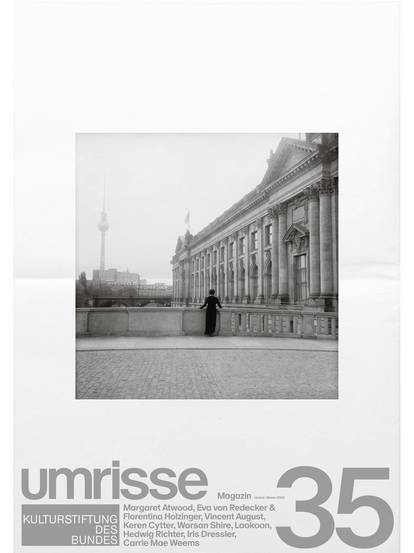
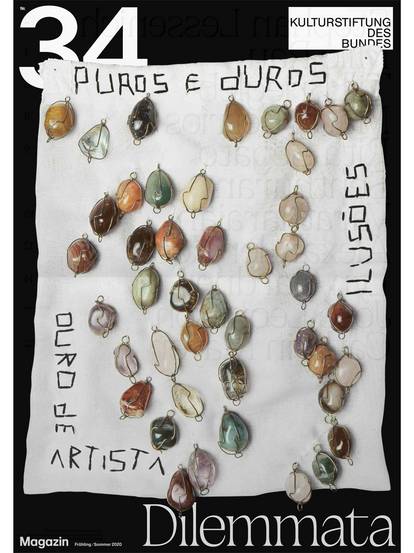
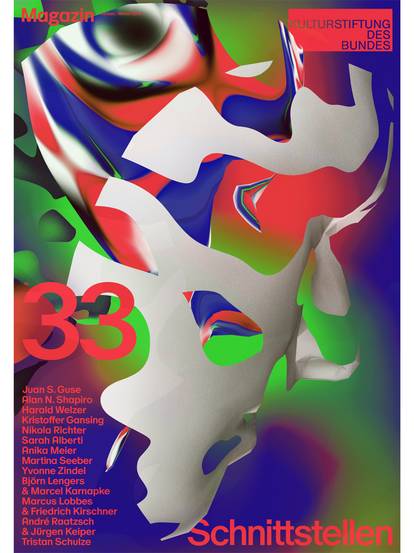
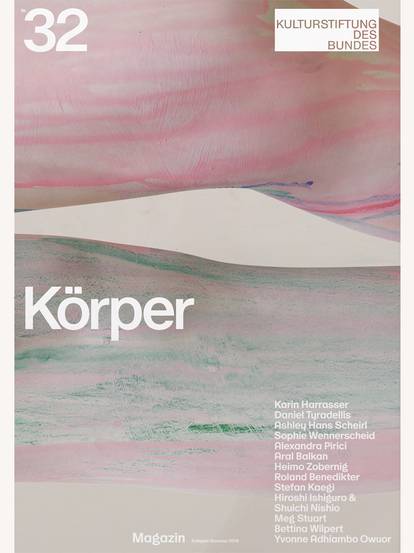
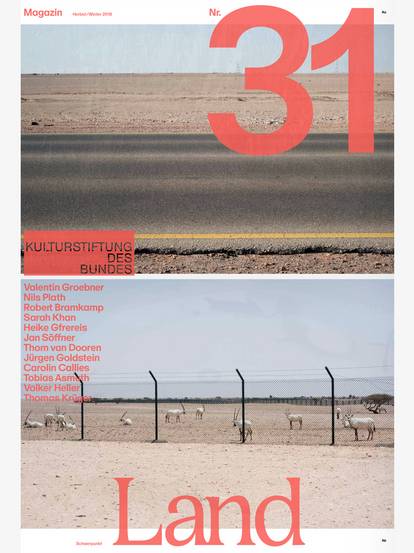
![[Translate to English:] Magazine 30](/fileadmin/_processed_/c/b/csm_magazin30_vorschau_9005f773d3.jpg)

